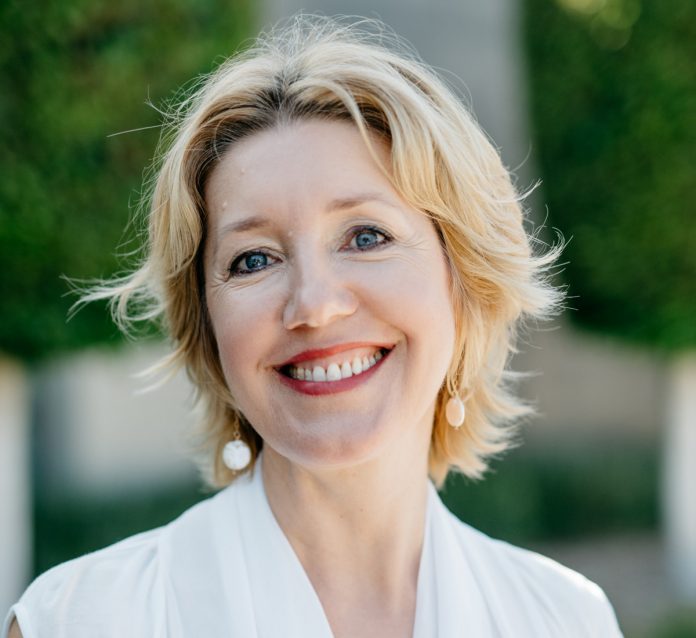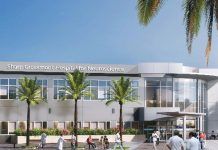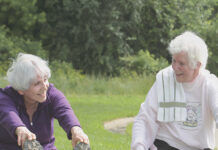Provided by Sharp Health News Team and Simona Valanciute, President & CEO, San Diego Oasis
Less than a year after the novel coronavirus appeared in the U.S., we now have two safe vaccines against COVID-19 approved by the FDA for emergency use—the fastest major vaccine development ever seen. The previous record-holder was the mumps vaccine, which still took four years to create. While this is an amazing accomplishment, the pandemic is far from over. Even though older adults are in the first priority group to receive the COVID-19 vaccine, they still need to take precautions to keep themselves and their families safe.
Here are some answers to the top questions seniors may have as states begin to distribute the COVID-19 vaccine.
How do the COVID-19 vaccines work? Are they safe?
Both the vaccines currently being given, from Pfizer/BioNTech and Moderna, are mRNA vaccines, which mean they contain genetic material from the novel coronavirus. When someone gets an mRNA COVID-19 vaccine, their body’s cells basically get instructions on how to create the proteins unique to the virus—and because those cells recognize that the virus shouldn’t be there, they produce antibodies that help them fight off infection if they’re ever exposed to the virus again.
Both vaccines were tested in clinical trials according to rigorous safety standards established by the FDA. The makers of both vaccines have reported a 94-95 percent efficacy rate in preventing severe illness. Learn more about the COVID-19 vaccine in this article by Sharp HealthCare. To find out how, when and where you can get the vaccine please visit the San Diego County COVID-19 Web page.
What can I do if I’m vaccinated?
If you’re older than 75, or older than 65 with certain health conditions, you will likely be vaccinated before many of your family members and even some friends. This means that until most of the population is vaccinated, your lives probably shouldn’t change much.
Certain things will be safer for you to do, though, such as going to the grocery store and running other errands. However, you will still need to take precautions against COVID-19 until most of the U.S. population is vaccinated. This includes wearing a mask around others, physically distancing from others, avoiding crowded indoor gatherings, frequently washing your hands and refraining from touching your face. The CDC has more detailed guidelines for how to protect yourself and your family.
How long will I need to wear a mask and physically distance?
Vaccinated people should still wear masks around others, and avoid crowded indoor gatherings, for at least the next several months. This is because scientists are still trying to figure out whether people who have been vaccinated can still spread the virus to others, even if their risk of getting sick is now much lower.
When can I visit my family and friends?
You should wait until at least two weeks after your last shot with either vaccine. However, most public health experts strongly advise against resuming visits with family and friends until all of them are vaccinated.
Will we ever go back to “normal”?
The novel coronavirus will likely continue to spread until a large majority of the population (at least 70 percent) is vaccinated or has developed natural immunity after surviving infection. The vaccines will not be an immediate ticket back to the way life was in 2019. Many experts agree that it’s better to think about how we “move forward” instead of “getting back to normal.”
In the meantime, it’s important for all of us, but especially older adults, to continue taking care of ourselves and staying safely engaged with the world around us, even if we’re isolating at home. Seek out virtual volunteer opportunities, such as tutoring or phone banking, and stay in contact with family members through phone calls and video chats. Additionally, learning new skills and meeting new people keeps you cognitively sharp and is good for your mental health. Many organizations, including San Diego Oasis, offer free or low-cost online classes in a variety of topics, from dance and fitness to art and technology.
We’ve all been challenged in 2020. Continuing to take all necessary precautions as we wait for most of the population to get vaccinated will take more patience, but it’s how we will move forward to the other side of this pandemic—and hopefully, to healthier, more balanced lives in the years ahead.
Simona Valanciute is the President and CEO of San Diego Oasis. Learn more at www.sandiegooasis.org.
About Sharp HealthCare
Sharp HealthCare, San Diego’s most comprehensive health care delivery system, is recognized for clinical excellence in cardiac, cancer, multi-organ transplantation, orthopedics, rehabilitation, behavioral health, women’s health, home health and hospice services.














